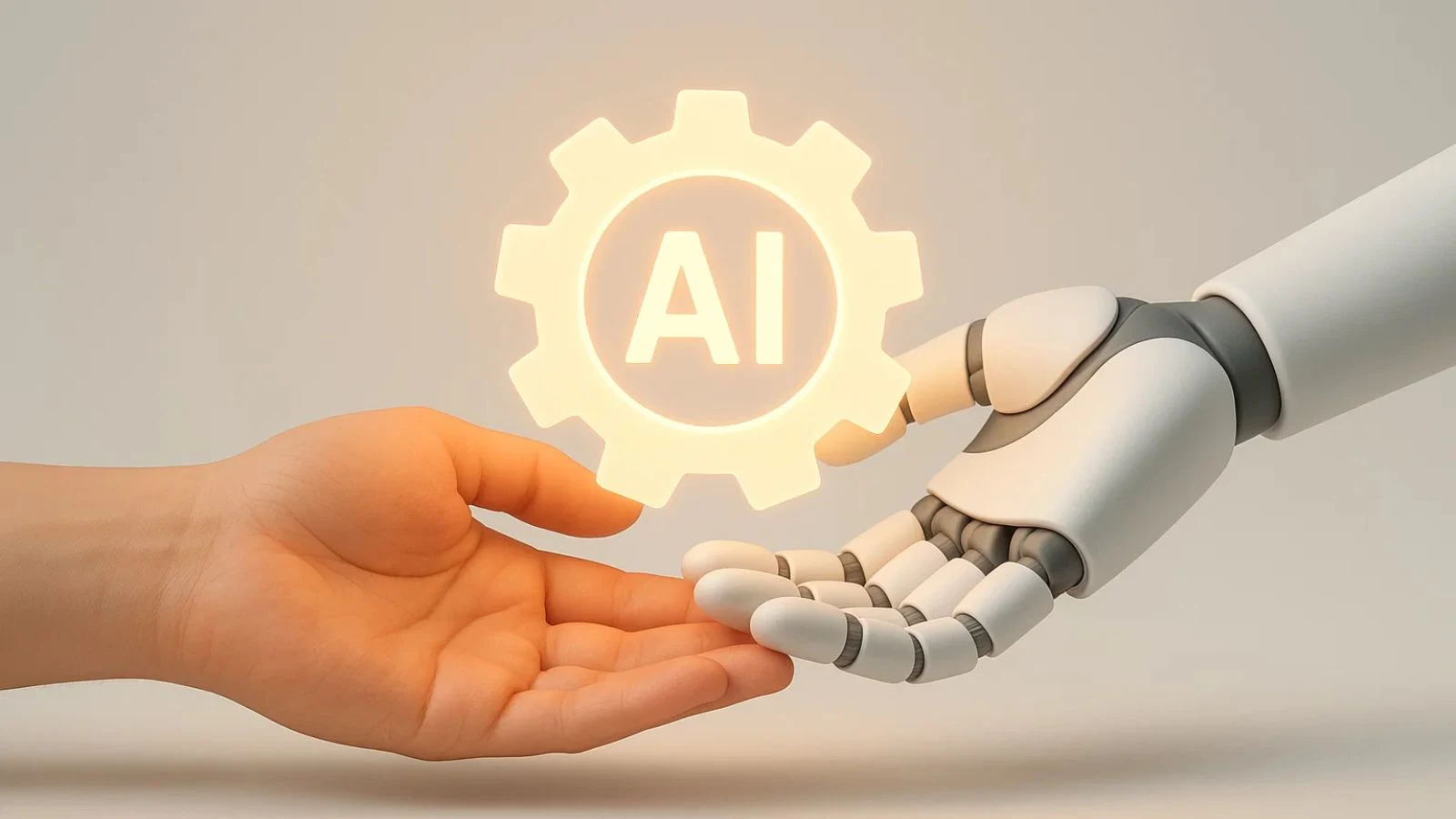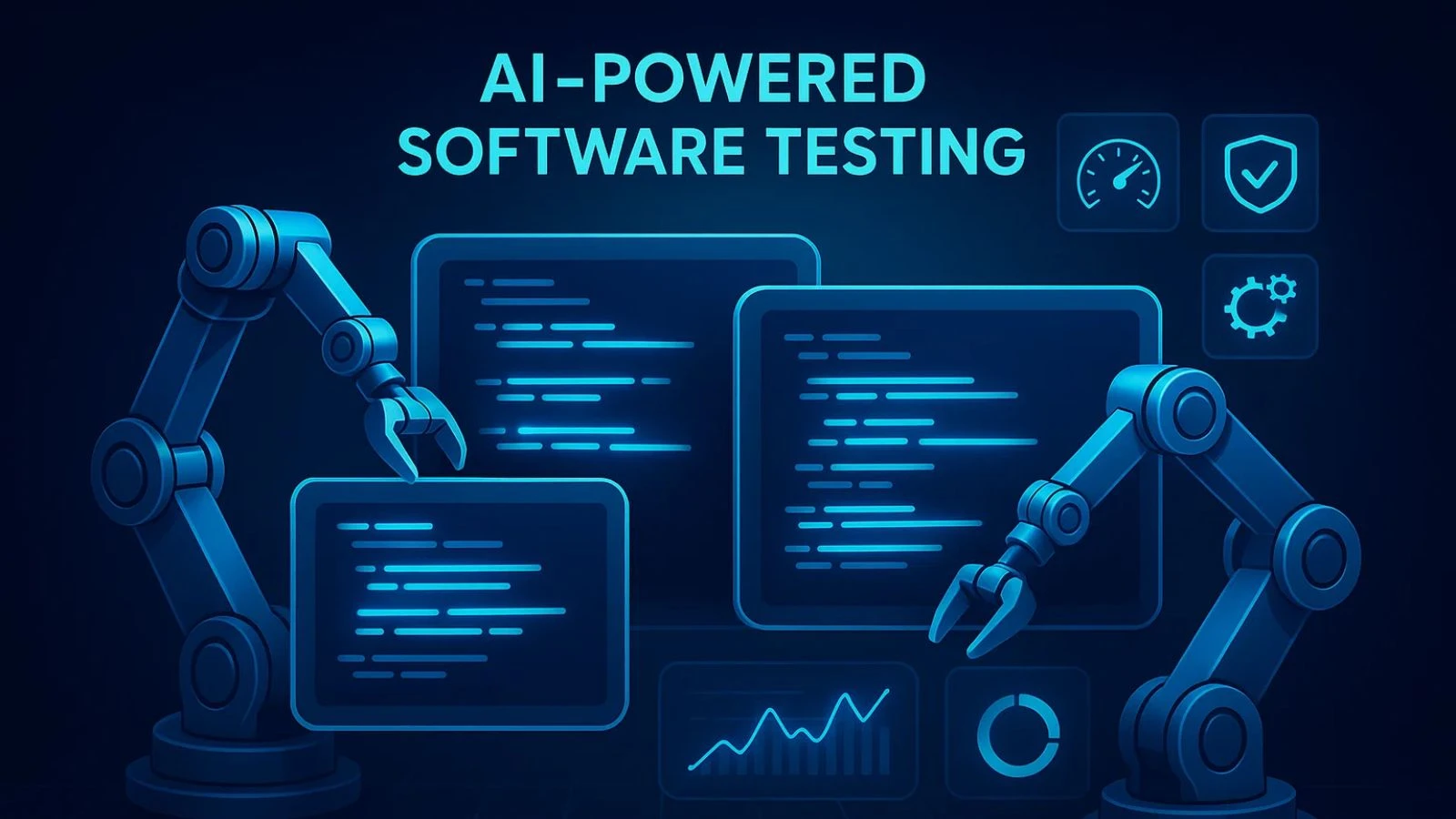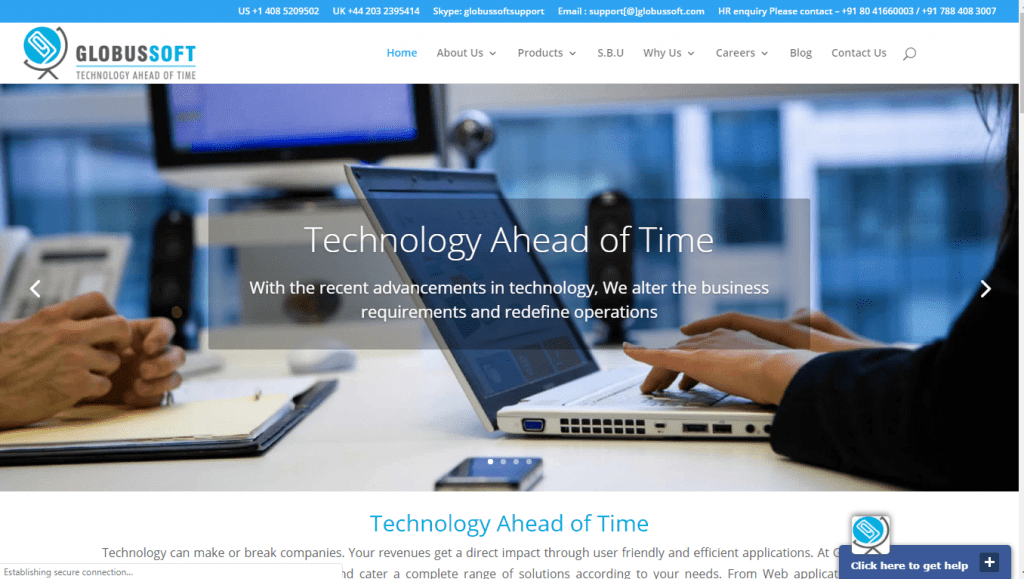As IT businesses continue to grow rapidly, AI in software testing is making the entire QA process smarter, faster, and more accurate. While traditional methods work, they often fail to keep up with today’s need for greater speed, precision, and scalability.
Also, manual testing can be time-consuming, repetitive, and prone to human errors, while traditional automation scripts often break whenever the application changes. This is why the implementation of AI in software testing is a must for any team that wants to deliver high-quality products at speed.
By leveraging the power of machine learning, data analysis, and automation, AI is transforming quality assurance into a smarter and faster process. Instead of relying on predefined rules or repetitive tasks, AI can analyse vast amounts of data, detect patterns, and make intelligent predictions to improve testing accuracy and efficiency. Just like AI in marketing automation helps businesses optimise campaigns and understand user behaviour, AI in software testing enables teams to anticipate issues earlier and streamline processes more effectively.
In essence, AI has made it possible for QA teams to move from reactive testing to proactive quality assurance. Software testers can now focus more on strategy and creativity, while AI handles repetitive execution and defect prediction. This shift not only saves time but also ensures better software reliability and user experience.
you can listen to this blog here.
What Is AI in Software Testing?
AI in software testing refers to the use of artificial intelligence and machine learning techniques to enhance and automate the process of testing software applications. Instead of relying entirely on human input or traditional scripts, AI brings intelligence and adaptability into testing environments.
In simple terms, AI helps testers identify bugs, predict failures, and optimize test coverage automatically. It learns from previous test cases, user behavior, and system performance data to make smarter testing decisions. This means fewer manual efforts, faster feedback loops, and more accurate results.
How AI Is Transforming the Testing Process?
The adoption of AI in software testing is transforming traditional QA from a manual, repetitive process into a smarter, automated, and predictive system. Instead of spending days writing and maintaining test scripts, teams can now rely on AI to do the heavy lifting.
AI-driven systems can analyze large sets of historical test data to identify common patterns, recurring bugs, and potential risk areas. This allows teams to predict defects even before they occur. Moreover, AI testing tools are capable of generating test cases automatically, significantly reducing human error and improving test accuracy.
AI can also perform visual testing by comparing UI layouts and detecting subtle design inconsistencies that might go unnoticed by human eyes. Similarly, in regression testing, AI can identify which parts of the code are most likely to break after an update, helping testers focus only on high-risk areas.
For example, AI can automatically detect changes in a user interface and adjust test scripts accordingly, saving hours of manual rework. It can also prioritize test cases based on risk or impact, ensuring critical areas are tested first. The integration of artificial intelligence in software testing has thus made QA more predictive, efficient, and cost-effective.
AI isn’t here to replace human testers—it’s here to empower them with insights and automation that make their jobs easier and more impactful.
Overall, AI for software testing helps organizations deliver better products faster. It shortens testing cycles, improves precision, and ensures a smoother user experience—transforming QA from a cost center into a strategic advantage.
Key Benefits of Using AI in Software Testing
Integrating AI in software testing offers a range of advantages that make quality assurance faster, smarter, and more efficient. Here are some of the most impactful benefits:
- Improved Accuracy
AI minimizes human errors in test execution and data analysis. By learning from past results, AI testing tools ensure that every test cycle becomes more precise and reliable over time. - Faster Test Execution
Traditional testing can be time-consuming. With AI automation testing tools, repetitive test cases run automatically, drastically cutting down the time needed for each testing phase while maintaining consistency. - Predictive Defect Analysis
AI algorithms can detect potential problem areas before they become critical issues. This predictive capability helps teams focus on high-risk sections, improving product stability. - Enhanced Test Coverage
AI scans applications thoroughly and identifies edge cases humans might miss. It automatically generates new test scenarios, ensuring more comprehensive testing coverage. - Continuous Learning and Adaptability
Unlike static scripts, AI systems continuously learn from new data and adapt to changes in the software environment—keeping tests relevant and up to date.
In short, AI tools for software testing help companies achieve faster releases, better quality, and reduced costs—all while improving user satisfaction.
Popular Use Cases of AI in Software Testing
The implementation of AI in software testing has opened up a wide range of practical applications that simplify and enhance quality assurance processes. Here are some key use cases where AI is making a major impact:
Test Case Generation
AI automatically creates test cases by analyzing existing code, user stories, and historical data. This saves time and ensures that all critical paths are tested without missing key functionalities.
Defect Prediction and Prevention
By studying previous bug data, AI based testing tools can identify which modules are more prone to defects. This predictive insight allows teams to proactively fix vulnerabilities before they impact users.
Visual Testing
AI-powered systems can compare screenshots of user interfaces and detect even the smallest visual inconsistencies. This is especially useful for applications with frequent design changes or multiple screen resolutions.
Regression Testing Automation
Regression testing is time-intensive, but AI automation testing tools can identify the areas of code most likely affected by updates and run targeted tests efficiently.
Natural Language Processing (NLP) for Test Creation
Modern tools use NLP to translate plain English test cases into automated scripts. Testers can simply describe the scenario, and AI converts it into executable tests.
Performance and Load Testing
AI helps simulate user behavior, traffic spikes, and system load conditions to predict how applications will perform under stress.
Through these applications, AI tools for automation testing are not only increasing productivity but also ensuring that software meets the highest standards of quality and performance. Similarly, AI productivity tools are helping teams streamline workflows, reduce manual effort, and boost efficiency across the entire development cycle.
How Globussoft Leverages AI in Software Testing?
Globussoft has been at the forefront of innovation, and its approach to AI in software testing is no exception. The company integrates advanced AI-driven techniques to improve accuracy, accelerate testing cycles, and enhance overall software quality.
By utilizing AI testing tools, Globussoft automates repetitive and time-consuming tasks like regression and functional testing, freeing QA teams to focus on strategy and innovation. Its intelligent testing framework uses data analysis and pattern recognition to identify bugs early, optimize test coverage, and ensure continuous quality delivery.
What sets Globussoft apart is its ability to merge artificial intelligence in software testing with real-world business needs. The company’s AI-driven platforms provide insights into code performance, predict potential issues, and suggest improvements automatically—ensuring every software release is faster, more reliable, and more efficient.
With its commitment to continuous innovation, Globussoft demonstrates how AI can transform testing from a manual routine into a smart, automated, and predictive process—paving the way for more intelligent and scalable QA practices.
The Future of AI in Software Testing
The future of AI in software testing looks incredibly promising as artificial intelligence continues to evolve. In the coming years, testing will become more autonomous, intelligent, and deeply integrated with development workflows.
We can expect AI tools for software testing to take on a larger role in continuous integration and deployment (CI/CD) pipelines, automatically adapting to code changes and running optimized test suites without manual intervention. AI will also enhance test data management—generating realistic data sets that mimic user behavior and edge cases more accurately than ever before.
As predictive analytics becomes more refined, AI for software testing will help teams anticipate defects before they appear and even recommend code improvements in real time. This shift from reactive testing to proactive quality assurance will redefine how organizations think about software reliability.
Moreover, as natural language processing and generative AI mature, testers will be able to describe test cases conversationally while the system writes, executes, and reports on them automatically.
In essence, AI is not just improving testing—it’s reshaping it entirely. The future belongs to teams that can harness this technology to deliver faster, smarter, and more resilient software.
Also Read,
Conclusion
The rise of AI in software testing marks a major shift in how businesses approach quality assurance. By introducing automation, intelligence, and predictive capabilities, AI allows teams to test faster, detect bugs earlier, and maintain exceptional software quality at scale.
From generating test cases to automating regression checks, AI tools for software testing are transforming QA from a manual effort into a continuous, data-driven process. Companies like Globussoft are leading this transformation by seamlessly integrating AI based testing tools into their workflows—making testing more efficient, reliable, and adaptable to changing development needs.
As technology continues to advance, AI will play an even greater role in shaping the future of software testing. The companies that embrace this evolution will not only save time and costs but also ensure that their products deliver the flawless experience users expect.
FAQs
- How is AI in software testing different from traditional testing?
Traditional testing relies heavily on manual scripts and human intervention, while AI in software testing uses machine learning to automate test creation, detect issues, and optimize processes. It learns from previous data to improve test accuracy and efficiency over time. - What are some benefits of using AI testing tools?
AI testing tools reduce manual effort, speed up regression testing, enhance accuracy, and offer predictive analytics for early bug detection. They help QA teams deliver high-quality software faster and with fewer resources. - How does Globussoft use AI to improve software testing?
Globussoft leverages AI tools for automation testing to identify defects early, generate intelligent test cases, and optimize testing workflows. This approach enhances speed, accuracy, and reliability, ensuring seamless performance for every product release.


